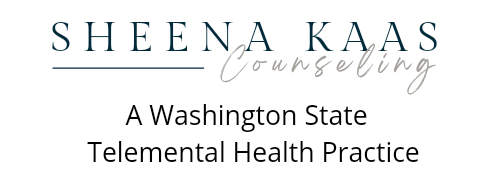Get your emotions on track
Treatment for Anxiety and Depression
Whether you have been formally diagnosed by a medical provider with anxiety, depression or another disorder characterized by strong emotions (i.e. Panic Disorder, Generalized Anxiety Disorder, Social Anxiety Disorder, Obsessive-Compulsive Disorder, Posttraumatic Stress Disorder, Borderline Personality Disorder, or Eating Disorder)–or you are simply tired of overwhelming emotions, treatment will address similar underlying features:
- Frequent, strong emotions. You feel intense emotions. This alone may not lead to distress. Many individuals are hard-wired to feel deeply; however, this tendency can become challenging when in combination with the next two features.
- Negative response to emotions. You view your emotions negatively and struggle with thoughts like “I hate the way that I feel,” or “I have to keep moving so I don’t slump into depression,” or “I’m never going to feel normal.” You may have a negative reaction to the physical sensations that accompany emotions like racing heart of sweaty hands. Or You may have a negative reaction to intrusive, unwanted thoughts. You may even have a negative reaction to happiness!
- Avoidance of emotions. Because emotions seem so unbearable, you may (understandably) want to avoid them. This can limit your life experience if your emotions are keeping you from going to social activities, enjoying deep emotional connections with loved ones, or achieving your goals. Avoidance can help in the short term but can lead to more frequent and more intense emotions in the long term.
Treatment will focus on learning to react to emotions in a new and different way. You will learn how to
- Understand your emotions and their components (thoughts, physical sensations, and behaviors),
- Separate yourself from your emotions so that you are looking at them rather than reacting from them,
- Respond to emotions in a new and flexible way, and
- Put yourself in the lead of your life, so that emotions no longer run the show.
Interventions
When you work with me, you receive an individualized treatment plan that meets you where you’re at and guides you to where you want to be. Your treatment could include the following:
Cognitive Behavioral Therapy (CBT)
Cognitive Behavioral Therapy (CBT) explores how your thoughts drive your emotions and behaviors. You will learn skills to help you examine and change unhelpful thoughts. This is a great approach if you like homework between sessions and want to practice skills on your own.
Christian Counseling
Christian Counseling blends mental health therapy with the Christian belief system. I utilize faith concepts to help empower you and to help you make sense of painful emotional experiences. This is a great approach if you lean on Christian ideology as your source of strength. This approach is used in combination with one or more other approaches and is not intended to replace ecclesiastical guidance.
Client-centered Counseling
Client-centered Counseling puts you in the leadership of your own self-discovery journey. I provide support to you and we seek shared understanding and meaning of your current challenges. I operate from this frame of mind with all clients.
Internal Family Systems Therapy (IFS)
Internal Family Systems Therapy (IFS) explores your inner world as “parts” of the mind. For example, you may experience internal conflict about a problem: “A part of me knows that it’s reasonable to feel anxious but another pat of me hates that I feel this way.” IFS can help you reconcile this polarization and bring you greater clarity of mind. IFS is a great approach if you want to move beyond coping skills and want to focus on building a new relationship with yourself.
Solution Focused Therapy
Solution Focused Therapy is a conversational and collaborative approach to uncover solutions to current challenges. You will explore the skills and strengths that you already possess and turn them into actionable steps for forward progress. This is a great approach if you want to focus on navigating a current challenge that contributes to your suffering.
How it Works
 Schedule a free consultation.
Schedule a free consultation.
We’ll talk together for about 15 minutes. I’ll ask a few questions about you and your goals and answer questions. If my services are not a good fit, then I will assist you with finding a provider who will better meet your needs. If my services are a good fit we will schedule your first appointment; most appointments can be scheduled within two weeks.
 Complete intake paperwork.
Complete intake paperwork.
You will receive an email with a link to access your secure client portal. Once inside the portal, you will complete intake forms and questionnaires. They should take about 15 minutes to complete. Plan to provide information about your background, your current challenges, and your goals for treatment. You will complete some screeners that will help inform treatment.
 Attend first appointment.
Attend first appointment.
Access your telehealth appointment via the secure client portal. Plan to meet with me weekly to every other week for about six sessions. We will reassess frequency after that point.



